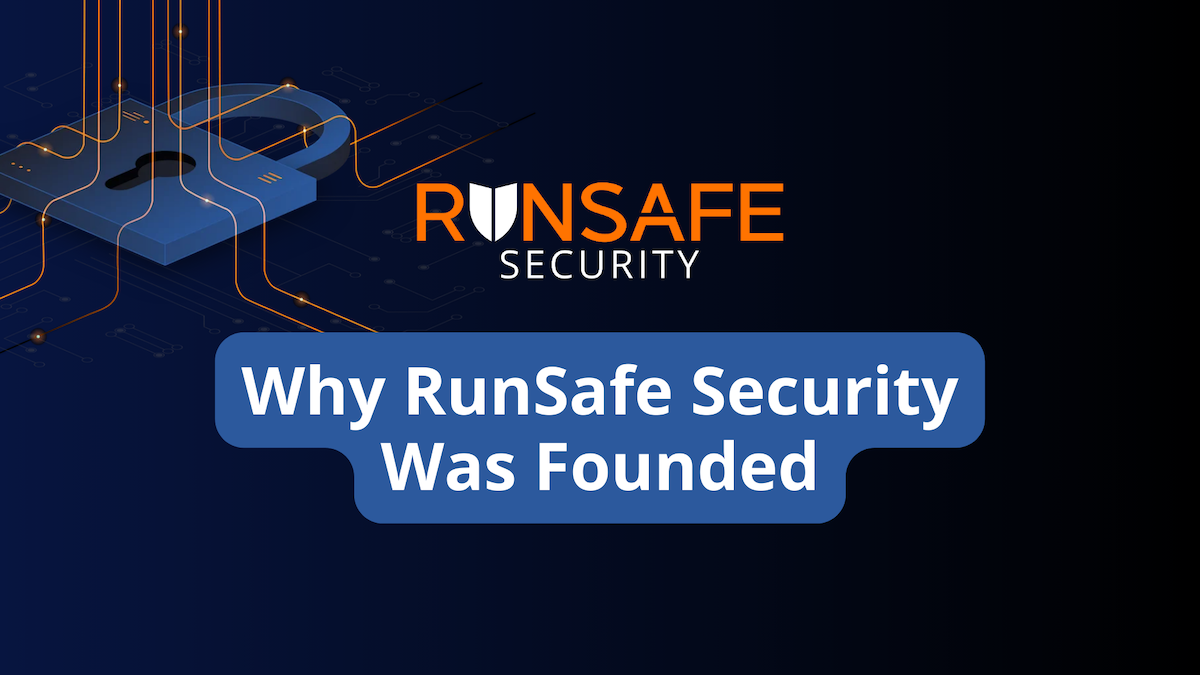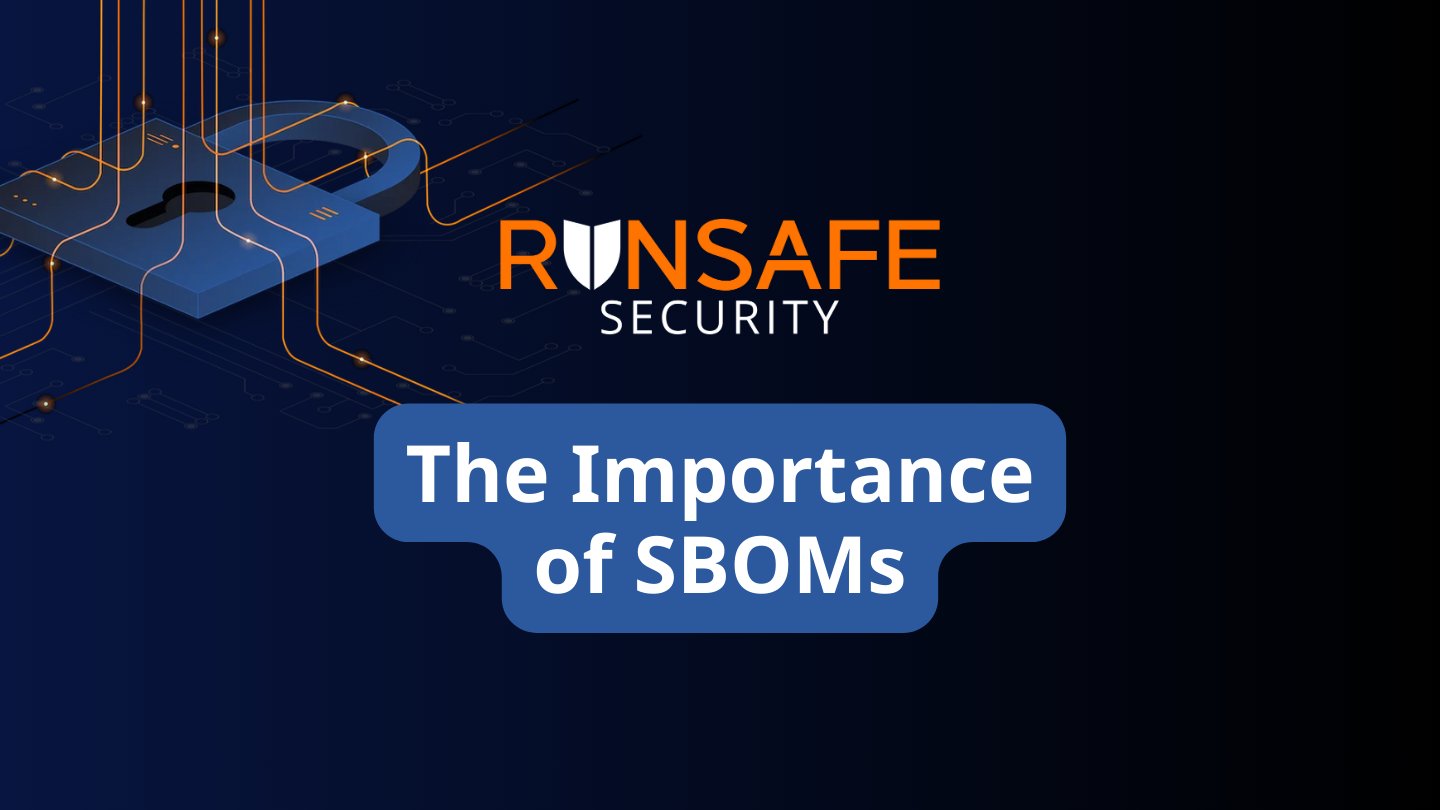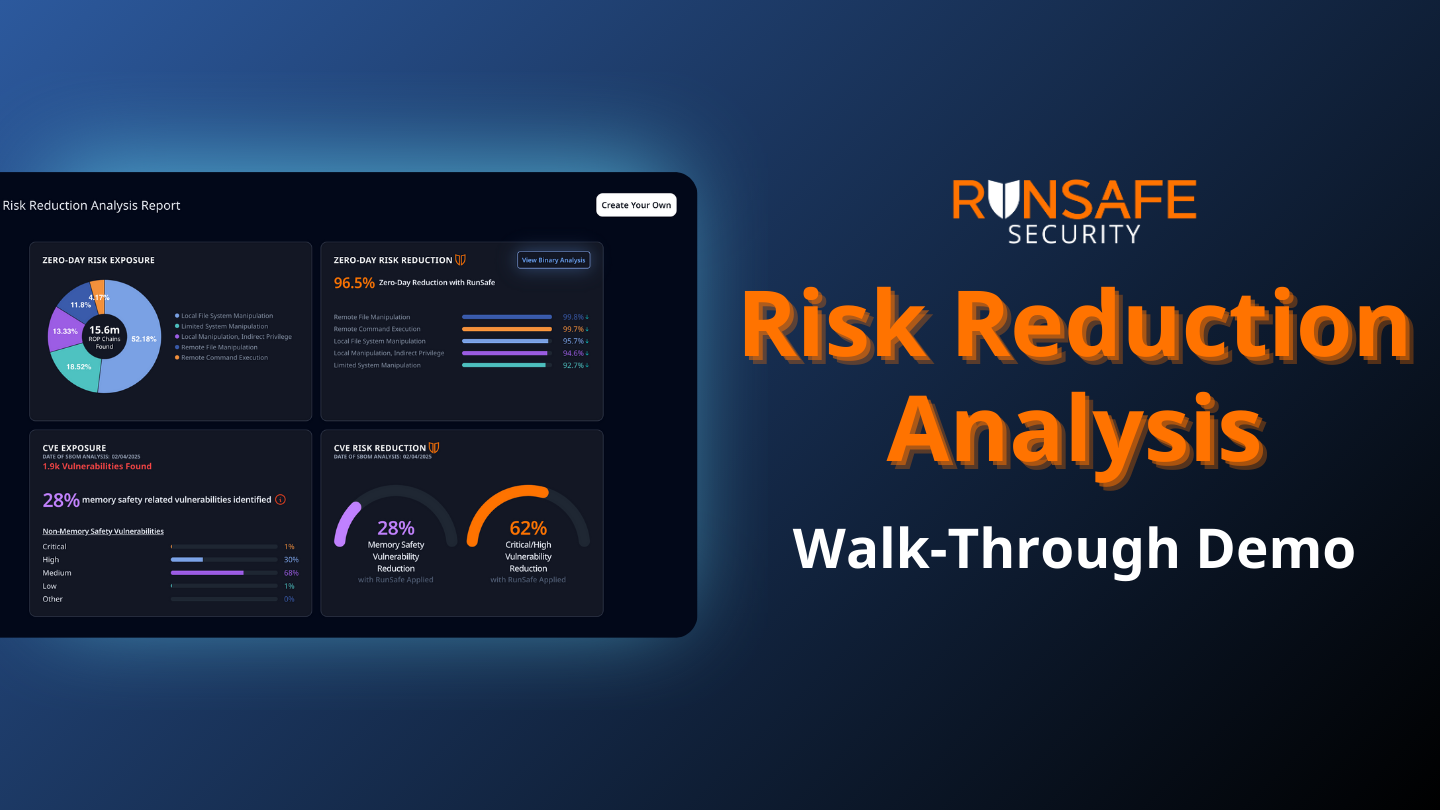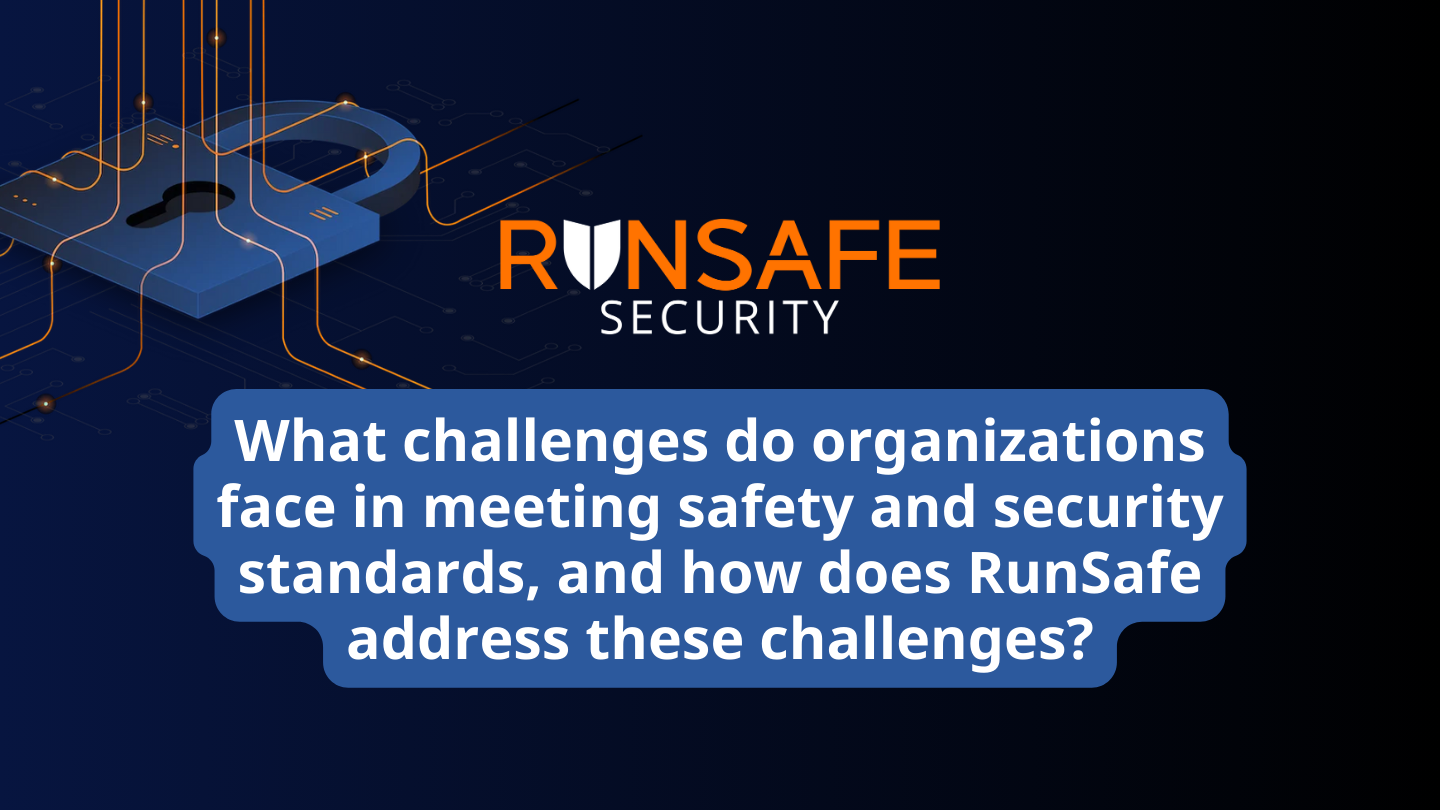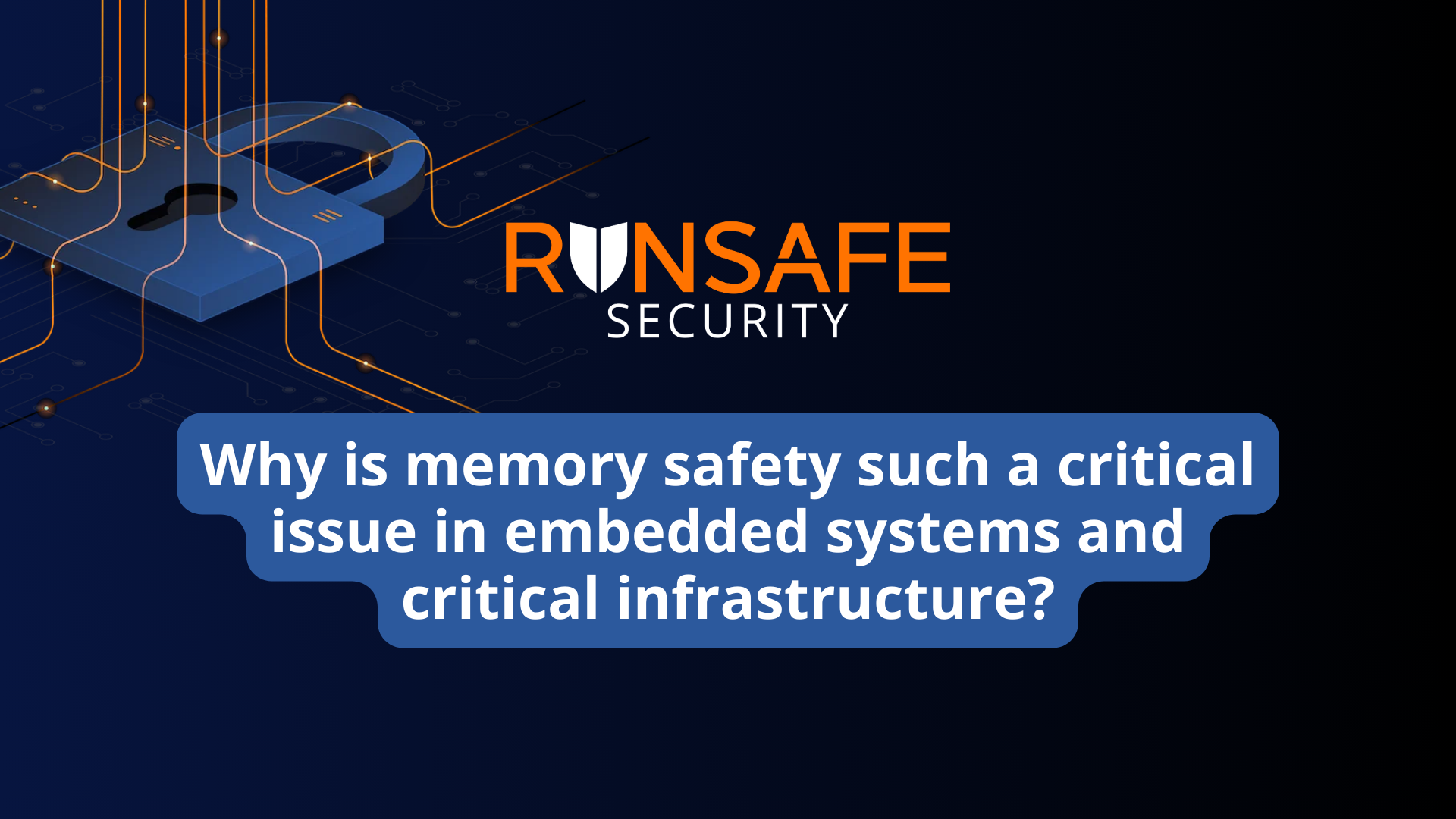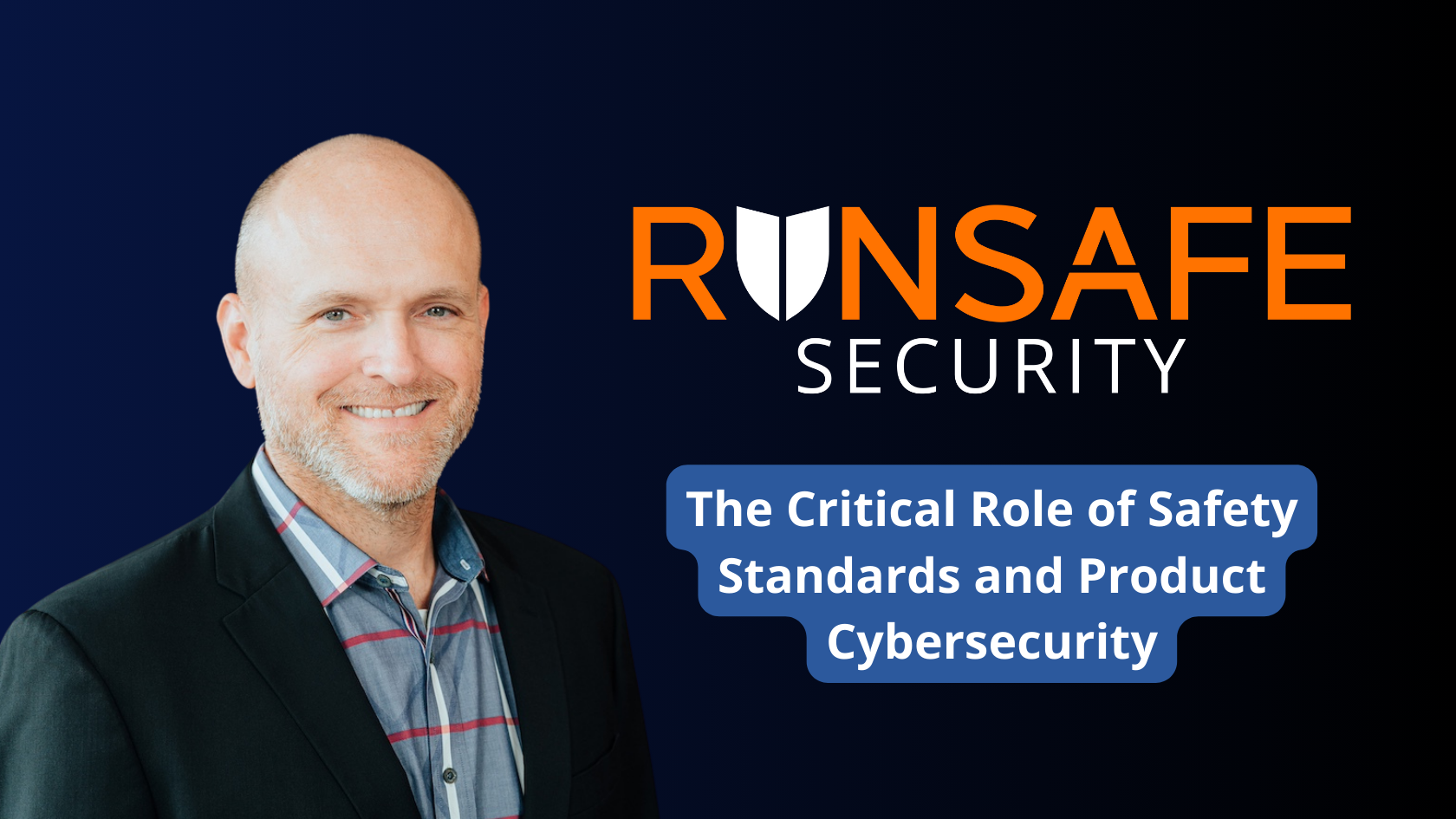Why RunSafe Security Was Founded—and the Economic Principle That Inspired It In this video, RunSafe Security Founder...
Videos
Discover a wide array of expertly produced videos on Software Supply Chain Security, SBOM, Code Protections, and Vulnerability Remediation. Dive into the latest Cybersecurity Policies and gain exclusive insights into RunSafe Security’s innovative solutions. Enhance your cybersecurity expertise and stay ahead in the industry with our comprehensive video resources.
The Importance of SBOMs
Build-Time SBOMs: Your First Line of Defense in Software Security The software you write might be secure—but what...
How RunSafe Helps Organizations Meet Safety and Security Standards
Analyze CVE and Zero-Day Risk in Embedded Systems Is your embedded system software vulnerable to attack? RunSafe...
How RunSafe Helps Organizations Meet Safety and Security Standards
Meeting Modern Safety and Security Standards—Without the Hidden Costs Meeting today’s safety and security standards...
Why Memory Safety is Critical for Embedded Devices & Critical Infrastructure
The Growing Risk of Memory Safety Vulnerabilities in Embedded Systems Memory safety vulnerabilities are a major...
The Critical Role of Safety Standards in Cybersecurity
Ensuring Compliance and Resilience Through Proactive Security In this interview, Doug Britton, Chief Strategy Officer...
